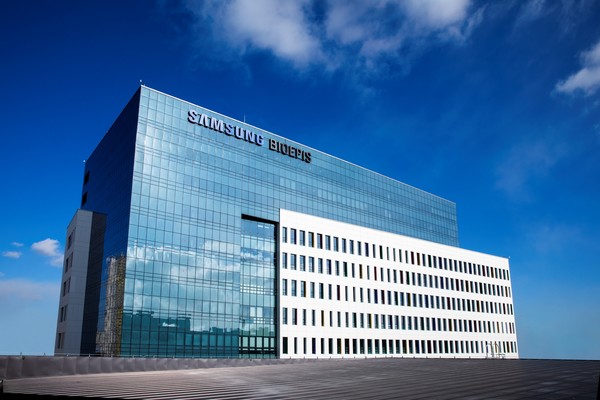Samsung Biologics said Friday that it had decided to acquire all 10,341,852 shares of Samsung Bioepis owned by Biogen, a multinational pharmaceutical company, for $2.3 billion.
After Biogen requested Samsung Biologics to buy out their shares, the two companies finalized the deal.

Biogen had owned 50 percent minus one share in Samsung Bioepis after establishing the biosimilar joint venture with Samsung Biologics in 2012. With the acquisition, Samsung Biologics acquired a 100 percent stake in Bioepis, making the latter a wholly-owned subsidiary.
Samsung Biologics will pay the acquisition price in installments over the next two years, excluding $50 million in earn-out, payable if Biogen meets certain commercial milestones. When Samsung Biologics completes the first $1 billion payment, the contract will take effect.
"The earn-out is an incentive related to Biogen's sale of Samsung Bioepis' biosimilar in EU," a Samsung Biologics spokesperson said to Korea Biomedical Review on Friday.
However, the official did not provide specific details about the earn-out clause, stating that the company would reveal them shortly.
Despite the buy-out, the two companies decided to continue their close cooperative relationship after completing the contract to sell shares and continue their exclusive agreement, including the commercialization of Samsung Bioepis' portfolio.
Samsung Biologics stressed that as the company has gained development, clinical, licensing, and commercialization capabilities of Bioepis on top of its robust contract development and manufacturing organization (CDMO) business, it would accelerate its goal of fostering its bio business.
The company plans to conduct its bio business in three parts – Samsung Biologics' CDMO business, Samsung Bioepis’ biosimilar products, development capabilities, and the possibility of advancing into the new drug business.
Samsung Biologics is building the world's largest biopharmaceutical manufacturing plant and plans to break ground for a "Multi-Modal Plant," which can produce various biopharmaceuticals in one plant, this year.
Samsung Bioepis has released five biosimilar products -- three autoimmune disease treatments and two anticancer drugs -- to the global market.
The company is also on the verge of launching a new biosimilar that has received product approval and four biosimilars in phase 3 clinical trials.
As Bioepis has become a wholly-owned subsidiary, Samsung Biologics said it would pursue mid- to long-term growth strategies, such as new pipeline development, open innovation, and new drug development independently, quickly, and flexibly.
Samsung Biologics has decided to conduct a capital increase of 3 trillion won ($2.4 billion) to acquire Biogen's stake in Bioepis and secure the investment funds necessary for business expansion.

